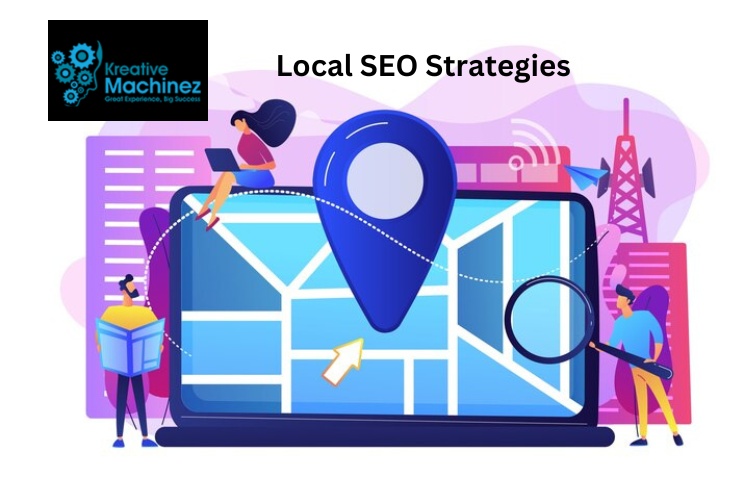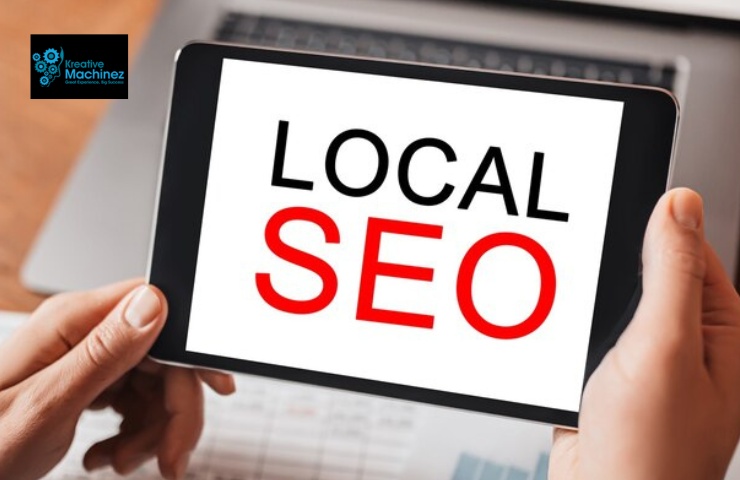Want to dominate your local market?
Create a robust local SEO strategy.
But, of course, that’s easier said than done—unless you’re working with specialists at an SEO agency.
This article will help you get started.
Here’s a complete local SEO checklist.
Optimize Your Google Business Profile Listing for Local SEO
Your
Google My Business (GMB) listing is often the first interaction potential customers have with your business.
Make sure your GBP profile is claimed, verified, and filled with up-to-date information. This includes your business name, address, phone number, operating hours, and categories that accurately describe your business.
Upload high-quality photos of your establishment, products, or services, and use the Q&A feature to answer any common questions, Regularly updating your GBP listing with posts about promotions, events, or news can also keep your audience engaged.
Maintain Consistency Across Directories
Inconsistencies in your business name, address, and phone number (NAP) across the web can confuse search engines and potential customers.
Ensure your NAP is uniform across all platforms, including local directories, social media profiles, and your website.
This consistency helps search engines confidently present your business in local search results, improving your chances of ranking higher.
Build Local Links
Backlinks from reputable local sources can significantly boost your local SEO efforts.
Aim to get listed on local industry associations and other prominent community sites.
These links act as a vote of confidence from your locality, signaling to search engines that your business is a trusted local entity.

Leverage Google Posts
Google Posts is a feature within your GBP listing that allows you to create content directly on Google, which appears in both search and map results.
Use this feature to post updates, events, offers, and product highlights.
These posts can improve engagement and keep your business relevant in the eyes of both Google and potential customers.
Encourage Customer Reviews
Reviews are a cornerstone of local SEO and can sway potential customers' decisions. Encourage satisfied customers to leave positive reviews on your GMB listing, Yelp, Facebook, and other relevant platforms.
Respond to reviews, both positive and negative, professionally.
This not only shows that you value customer feedback but also can improve your visibility in search results.
Optimize Business Listings on Key Directories
Beyond Google Business Profile, your presence on other key directories is essential.
Platforms like Yelp offer additional opportunities to be discovered by local customers. Ensure your business listings are not only present but also optimized on these sites.
This means having detailed descriptions, the correct categorization of your business, and any additional information that can help users understand what you offer.
Regularly check these listings for accuracy and update them as needed.
Use Schema Markup for Local SEO
Schema markup is a code that you can add to your website to help search engines return more iy including schema markup for your business name, address, and phone number, you're making it easier for search engines to understand and display this information in search results.
This can enhance your visibility in local searches and can contribute to features like rich snippets, which stand out in SERPs.
Create Locally-Optimized Content
Creating content that resonates with your local audience can significantly boost your local SEO efforts.
Start by producing blogs that highlight local events, news, or activities related to your business.
Develop location pages that provide specific information about your services in different areas, and ensure landing pages for local services are optimized with local keywords and information.
This type of content not only helps with SEO but also establishes your business as an integral part of the local community.
Invest in Local PPC and Social Ad Campaigns
Pay-per-click (PPC) and social media advertising can be powerful tools for local businesses.
When setting up these campaigns, focus on location-based targeting to reach potential customers in your area.
Use geographical keywords and set location parameters to ensure your ads are displayed to a local audience.
Highlight proximity in your ad copy to appeal to users looking for nearby solutions. This strategy can drive local traffic and increase footfall to your physical locations.
Drive Social Media Engagement in Local Communities
Social media isn't just a global platform; it's also a local community builder. Engage with local audiences by participating in community groups and responding to mentions and tags.
Share local news, support other local businesses, and actively participate in conversations relevant to your area.
This engagement can increase your local visibility and position your brand as an active member of the local community.
Get Sponsorships and Local Involvement
One of the most impactful ways to improve local SEO is to get involved in the community. Sponsor local events, contests, or causes to gain visibility and build goodwill.
These activities often lead to mentions in local media and on event websites, which can improve your local link profile and brand recognition.
Community involvement also provides content opportunities for your website and social media channels.
Get Aggressive With Local SEO Keyword Analysis
To understand your local SEO performance, regularly analyze your rankings for local keywords.
Use tools like Google Analytics and Google Search Console to track your traffic and search positions.
Look for trends in what local customers are searching for and how they're finding your business. This data can inform your content strategy and help you refine your keyword targeting.
Build Internal Links for Local Relevance
Internal linking is an essential part of SEO and can benefit your local optimization efforts.
Creating internal links to location-specific pages on your site signals search engines that these pages are important.
Use relevant anchor text that includes local keywords, and ensure the links are natural and useful for users.
This not only helps with SEO but also improves the user experience by making it easier for visitors to navigate to relevant local content.
Final Thoughts
Even if you know what needs to be done, the “how” part is always challenging.
So, to ace local SEO and drive more value for your business, consider getting help from experts. Contact an
SEO agency and leverage their experience and expertise for better results.
An effective local SEO strategy with efficient execution can yield excellent outcomes for your business, paving the way to a faster and bigger growth rate.





